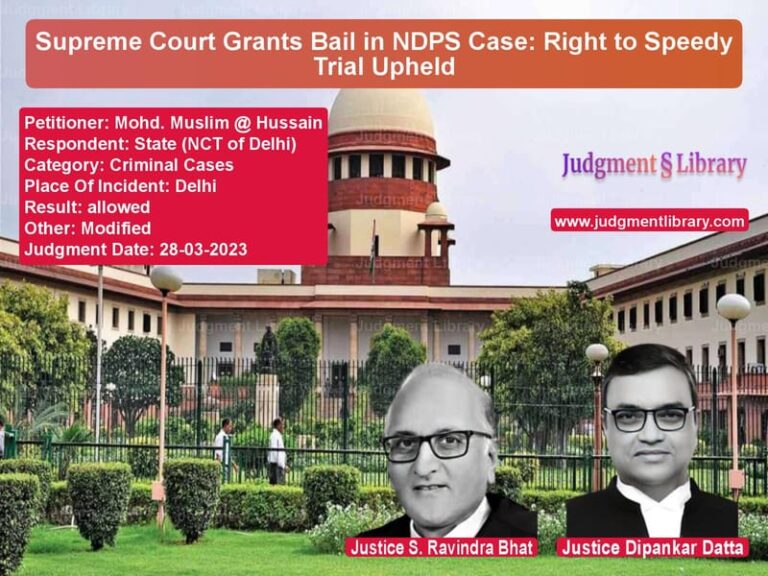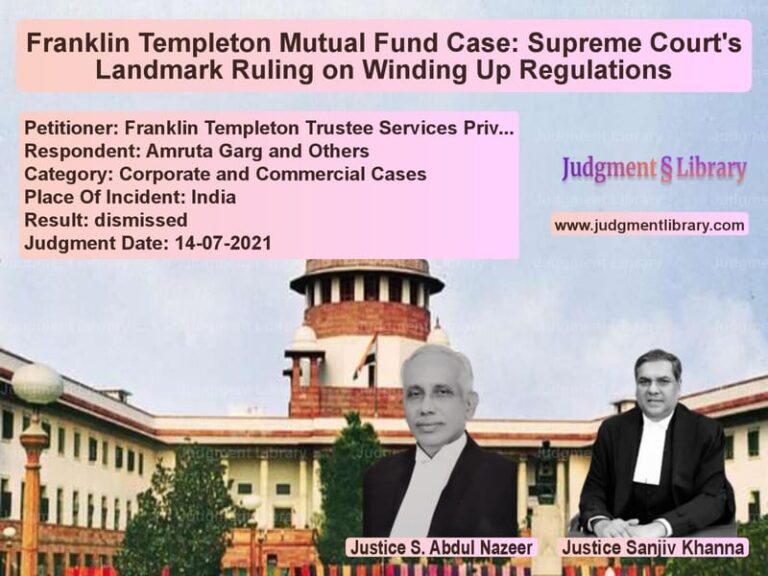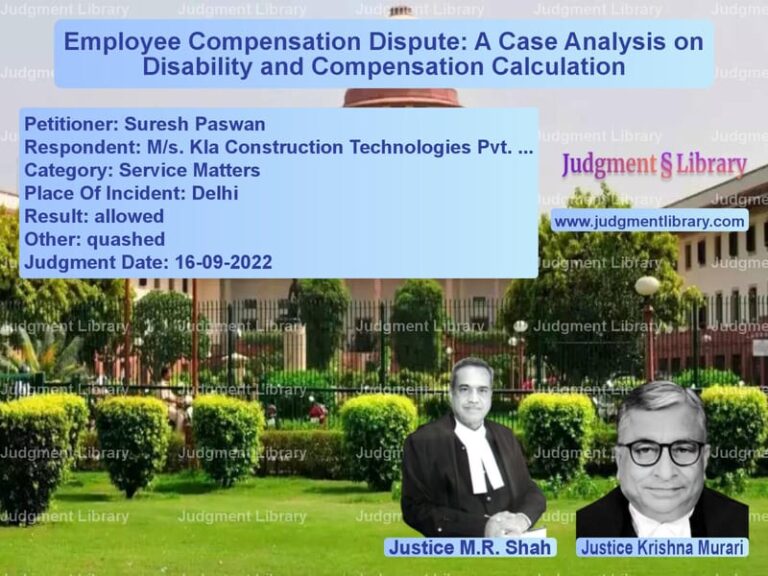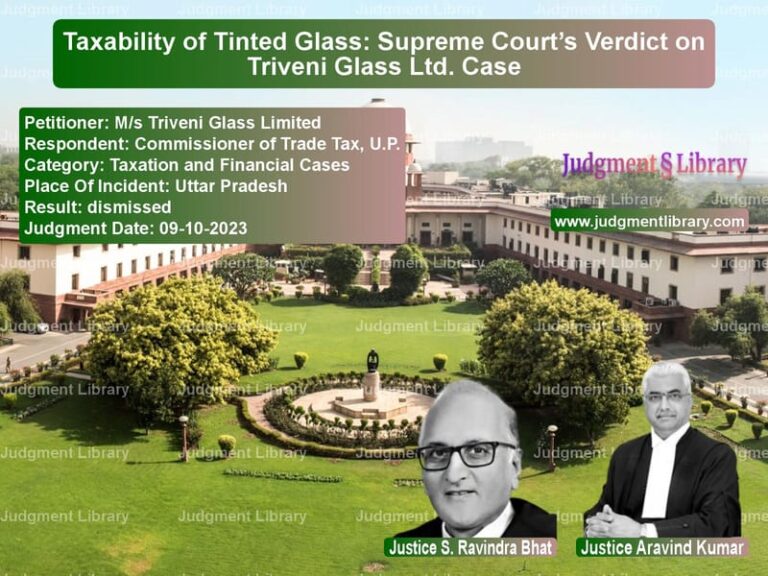Supreme Court Acquits Three in Murder Case: High Court’s Conviction Overturned
The Supreme Court of India recently delivered a crucial verdict in Babu Sahebagouda Rudragoudar & Ors. v. State of Karnataka, acquitting three individuals convicted of murder by the Karnataka High Court. The case revolved around an alleged revenge killing in 2001, where the accused were said to have murdered a man named Malagounda. The trial court had acquitted all six accused, but the High Court overturned this decision for three of them. The Supreme Court, however, found the High Court’s judgment flawed, reaffirming the principles governing appeals against acquittals.
Background of the Case
The case began when six individuals, including the appellants Babu Sahebagouda Rudragoudar, Alagond Sahebagouda Rudragoudar, and Mudakappa Rudragoudar, were charged with the murder of Malagounda in Babanagar, Karnataka. The prosecution alleged that on September 19, 2001, the appellants, armed with weapons, ambushed the deceased and attacked him in an act of revenge.
- The trial court acquitted all six accused on July 23, 2005, citing inconsistencies in witness statements.
- The Karnataka High Court overturned the acquittal of three accused on September 14, 2009, convicting them under Section 302 read with Section 34 IPC and sentencing them to life imprisonment.
- The remaining three accused were acquitted, with one of them dying during the trial.
- The Supreme Court was approached to review the High Court’s decision.
Arguments by the Appellants
- The appellants argued that the High Court had no valid reason to reverse their acquittal, as the trial court’s findings were based on thorough evaluation of evidence.
- They contended that witness statements were unreliable, riddled with contradictions, and not corroborated by medical and forensic evidence.
- The delay in filing the FIR raised questions about the authenticity of the prosecution’s case.
- They highlighted procedural flaws, including inconsistencies in the police’s handling of evidence.
Arguments by the Respondent (State of Karnataka)
- The State contended that the High Court had correctly analyzed the evidence and found the prosecution witnesses reliable.
- It argued that minor inconsistencies in witness statements did not undermine the overall case.
- The State defended the FIR delay, citing the complainant’s fear of the accused as justification.
Key Observations of the Supreme Court
- The Supreme Court reaffirmed the principle that an acquittal should not be overturned unless the trial court’s decision was perverse or wholly unsustainable.
- The Court noted multiple inconsistencies in prosecution witness testimonies, questioning their reliability.
- It found the delay in filing the FIR suspicious and unsupported by adequate justification.
- The medical evidence contradicted witness statements regarding the time and nature of the attack.
- It ruled that the prosecution failed to prove the guilt of the accused beyond reasonable doubt.
Final Judgment
The Supreme Court allowed the appeal and issued the following directives:
- The conviction and life sentence imposed by the High Court were quashed.
- The acquittal recorded by the trial court was reinstated.
- The appellants were ordered to be immediately released from custody.
- Their bail bonds were discharged.
Implications of the Judgment
- This ruling strengthens the doctrine that appellate courts must be cautious in overturning acquittals.
- It underscores the need for reliable, consistent, and corroborated witness testimonies in criminal cases.
- The judgment prevents wrongful convictions based on procedural lapses and weak evidence.
- It reinforces fair trial principles and upholds the presumption of innocence.
Conclusion
The Supreme Court’s decision in this case serves as a landmark ruling in criminal jurisprudence. By reversing the High Court’s conviction and upholding the acquittal, the Court has reinforced the importance of evidentiary consistency, the right to a fair trial, and the need to protect individuals from wrongful conviction. This judgment will guide future cases where the prosecution’s evidence is weak or unreliable, ensuring that justice is served based on sound legal principles.
Petitioner Name: Babu Sahebagouda Rudragoudar & Ors..Respondent Name: State of Karnataka.Judgment By: Justice B.R. Gavai, Justice Sandeep Mehta.Place Of Incident: Babanagar, Karnataka.Judgment Date: 19-04-2024.
Don’t miss out on the full details! Download the complete judgment in PDF format below and gain valuable insights instantly!
Download Judgment: babu-sahebagouda-rud-vs-state-of-karnataka-supreme-court-of-india-judgment-dated-19-04-2024.pdf
Directly Download Judgment: Directly download this Judgment
See all petitions in Murder Cases
See all petitions in Bail and Anticipatory Bail
See all petitions in Custodial Deaths and Police Misconduct
See all petitions in Judgment by B R Gavai
See all petitions in Judgment by Sandeep Mehta
See all petitions in allowed
See all petitions in Quashed
See all petitions in supreme court of India judgments April 2024
See all petitions in 2024 judgments
See all posts in Criminal Cases Category
See all allowed petitions in Criminal Cases Category
See all Dismissed petitions in Criminal Cases Category
See all partially allowed petitions in Criminal Cases Category







